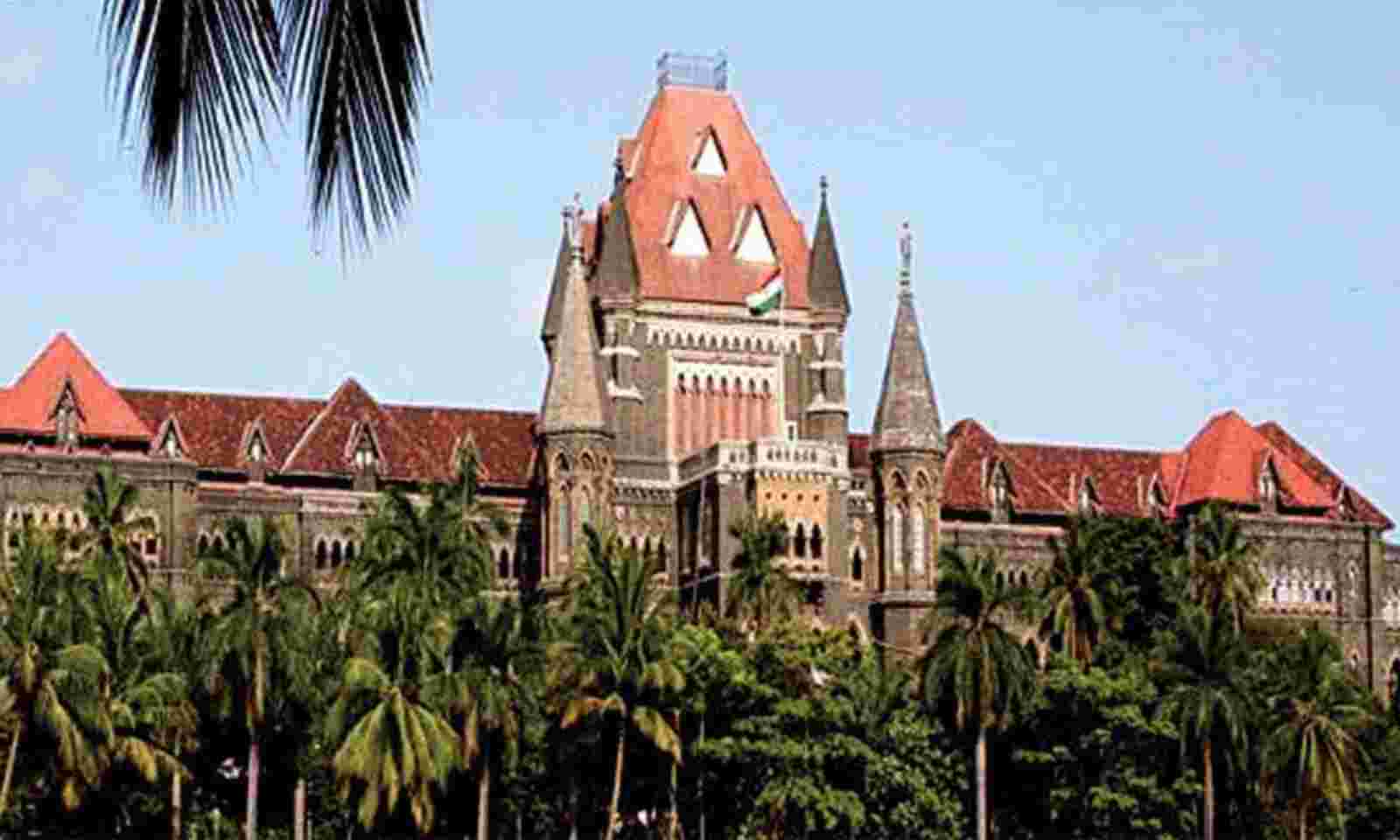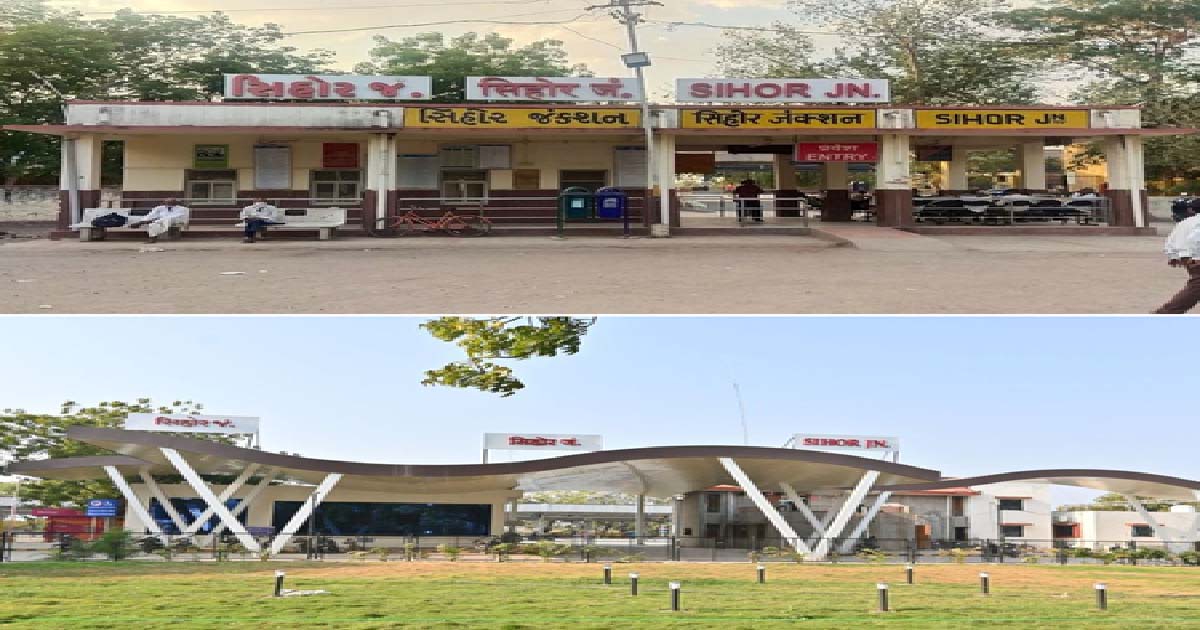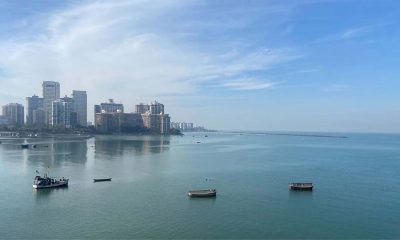National News
Bombay High Court says, ‘Speeding not an offence, rash driving is’

The Bombay High Court has upheld acquittal of a man whose car allegedly killed a cyclist and a bullock observing that driving a car speedily is not an offence; the act is punishable only if it is rash and negligent.
“Act of driving is punishable only when it is rash and negligent. Rashness implies speed which is unwarranted. Whereas the act of negligence involves not taking proper care and paying attention while driving,” observed Justice SM Modak early this month.
The HC was hearing appeal challenging acquittal of a Kuldeep Pawar
The HC was hearing an appeal filed by the State government challenging the acquittal of one Kuldeep Pawar.
According to the prosecution, on November 1, 2009, at 8.30am, Vasant Desai, owner of a bullock cart, and one Balaso Mane were cycling on a road near village Tasgaon. At the time, Pawar drove by in his Tata Sumo, at a speed, and allegedly dashed into the bullock and then into Mane. The police charged Pawar with culpable homicide not amounting to murder.
Pawar was acquitted on August 24, 2011. The state approached the HC challenging his acquittal. One of the passers-by testified that the car came speedily when it dashed against Mane and the bullock.
However, Justice Modak observed that the evidence has to be appreciated on the basis of other available materials.
Judge noted speed alone is not punishable
The judge noted that speed alone is not punishable unless the car is driven rashly and negligently.
The HC noted that the bullock cart owner and one of the eye witnesses gave completely opposite statements as far the directions of the bullock cart were concerned. That is, whether the art was heading south to north or vice-versa. The cart owner said he was going from north to south.
According to the spot panchanama, the bullock cart was lying on the southern side and facing the eastern flank. The panch witness, however, said that the bullock cart was found on the northern side of the road.
The HC noted that it could not conclude the directions in which the car, the bullock cart and the cyclist were going.
“With the assistance of both the sides (prosecution and accused), I am trying to understand the direction as per documentary evidence and the oral evidence. We have tried to understand it from various angles but we could not arrive at a particular conclusion,” noted justice Modak.
Advocate for Pawar said investigating officer is not an eye-witness
Aashish Satpute, advocate for Pawar, submitted that there were tea stalls at the accident spot; however, statements of none of these independent eye-witnesses were recorded by the police. The policeman, who was examined by the prosecution, is not an eye-witness to the incident and his evidence is only relevant to what he has seen after the incident, added Satpute.
The court felt that it was “really a strange state of affairs” — that, neither the Investigating Officer has prepared a map/rough sketch, nor “the trial court has taken pains in recording directions correctly in the evidence”.
“It is true that the consequences of the accident are the death of the bullock and the bicycle driver. For want of evidence, the trial court could not come to the conclusion about rash and negligent driving by the respondent. Even this court is unable to come to that conclusion for the above reasons,” said the HC while upholding Pawar’s acquittal.
Business
IndiGo Crisis: 75-Yr-Old Woman Waits Hours For Luggage Without Medicines At Mumbai T2 Airport

Mumbai, Dec 05: When IndiGo’s nationwide operational meltdown began disrupting flights earlier this week, thousands of passengers were caught in chaos across the country. Among them was a 75-year-old woman whose ordeal at Mumbai’s Terminal 2 gained attention after her daughter shared a distressed post on X. Thankfully, the woman has now reached home safely, but her experience reflects the scale of frustration travellers are facing.
In her post on X, Punita Toraskar wrote that her elderly mother had been waiting at T2 since noon, and even by 4:42 pm, she still hadn’t received her luggage. The situation was more alarming because the 75-year-old needed to take her medicines but was stuck waiting on an empty stomach, stranded amid the airport chaos.
Toraskar’s post quickly resonated with passengers across India who have been struggling with severe delays, cancellations, and a complete breakdown of communication from India’s largest airline.
IndiGo is currently grappling with one of the biggest operational crises in its history. Nearly 900 flights have been cancelled since Tuesday, triggered by a mix of staff shortages and the airline’s struggle to adapt to stringent new crew duty regulations.
Passengers at major airports — Delhi, Hyderabad, Bengaluru, and Kolkata — are facing hours-long queues, mounting delays, and skyrocketing airfares as alternative flight options shrink. Hotels are filling up, tempers are rising, and social media is flooded with frustration.
IndiGo has issued public apologies and claims it is rebooting its systems and schedules to stabilise operations. But for many travellers like Toraskar’s mother, the damage is already done.
Despite the turmoil, Punita confirmed later that her mother had finally reached home safely, a small relief in a week of aviation chaos.
Mumbai Press Exclusive News
Nigerian arrested with cocaine in Mumbai

Mumbai: Police has claimed to have arrested a Nigerian with cocaine in the limits of Maloney police station and 180 grams of cocaine have been seized from his possession. Police searched Manuchi Agwa alias Oliver Agwa, 27, during a patrol and recovered cocaine from his possession. Along with the cocaine, a total of Rs 72 lakhs has been seized from the possession of the Nigerian. The police have registered a case under the NDPS Act and started investigation.
Business
Rs 7,253 crore spent so far in 2025-26 on sprucing up railway stations in India: Vaishnaw

New Delhi, Dec 5: The government has spent Rs 7,253 crore so far (up to October), of the total budgetary allocation of Rs 12,118 crore for 2025–26, on the redevelopment of railway stations across the country under the Amrit Bharat Station Scheme, Railway Minister Ashwini Vaishnaw informed Parliament on Friday.
The minister stated in a written reply to a question in the Rajya Sabha that work is in progress at a good pace for the development of stations such as Tirupati, Yesvantpur, Rameswaram, and Safdarjung station in Delhi..
So far, 1,337 stations have been identified for development under this scheme since it was launched, of which 155 stations have been completed till now.
Vaishnaw said that the station development projects under the Amrit Bharat Station Scheme are primarily conceptualised with budgetary support. However, 15 stations have been identified to be explored for development under the Public Private Partnership (PPP) mode also and based on the experience gained from the same, further evolution of the scheme is envisaged.
He further stated that the ownership of stations and operations-related activity will be with the Indian Railways. However, for some identified major stations, specific activities or groups of activities may be entrusted to outside sources for specified tenures depending upon the type of activity, requirements of the station, demand, etc. The terms of the contract are decided on a case-by-case basis.
He said that the Amrit Bharat Station Scheme for the redevelopment of stations has been launched with a long-term approach.
The scheme involves the preparation of master plans and their implementation in phases to improve the stations. The master planning includes improvement of access to the station and circulating areas, integration of the station with both sides of the city, improvement of the station building and improvement of waiting halls, toilets, sitting arrangement, and water booths.
The redevelopment plans also include provision of wider foot over bridge or air concourse commensurate with passenger traffic, provision of lifts, escalators and ramps, improvement of platform surface and cover over platforms and provision of kiosks for local products through schemes like ‘One Station One Product’.
Besides, the construction of parking areas, multimodal integration, amenities for Divyangjans, better passenger information systems, provision of executive lounges, nominated spaces for business meetings and landscaping is being taken up, keeping in view the necessity at each station, Vaishnaw said.
The scheme also envisages sustainable and environment-friendly solutions, provision of ballastless tracks, etc., as per necessity, phasing and feasibility and creation of a city centre at the station in the long term, the minister added.
-

 Crime3 years ago
Crime3 years agoClass 10 student jumps to death in Jaipur
-

 Maharashtra1 year ago
Maharashtra1 year agoMumbai Local Train Update: Central Railway’s New Timetable Comes Into Effect; Check Full List Of Revised Timings & Stations
-

 Maharashtra1 year ago
Maharashtra1 year agoMumbai To Go Toll-Free Tonight! Maharashtra Govt Announces Complete Toll Waiver For Light Motor Vehicles At All 5 Entry Points Of City
-

 Maharashtra1 year ago
Maharashtra1 year agoFalse photo of Imtiaz Jaleel’s rally, exposing the fooling conspiracy
-

 National News1 year ago
National News1 year agoMinistry of Railways rolls out Special Drive 4.0 with focus on digitisation, cleanliness, inclusiveness and grievance redressal
-

 Maharashtra1 year ago
Maharashtra1 year agoMaharashtra Elections 2024: Mumbai Metro & BEST Services Extended Till Midnight On Voting Day
-

 National News1 year ago
National News1 year agoJ&K: 4 Jawans Killed, 28 Injured After Bus Carrying BSF Personnel For Poll Duty Falls Into Gorge In Budgam; Terrifying Visuals Surface
-

 Crime1 year ago
Crime1 year agoBaba Siddique Murder: Mumbai Police Unable To Get Lawrence Bishnoi Custody Due To Home Ministry Order, Says Report






















